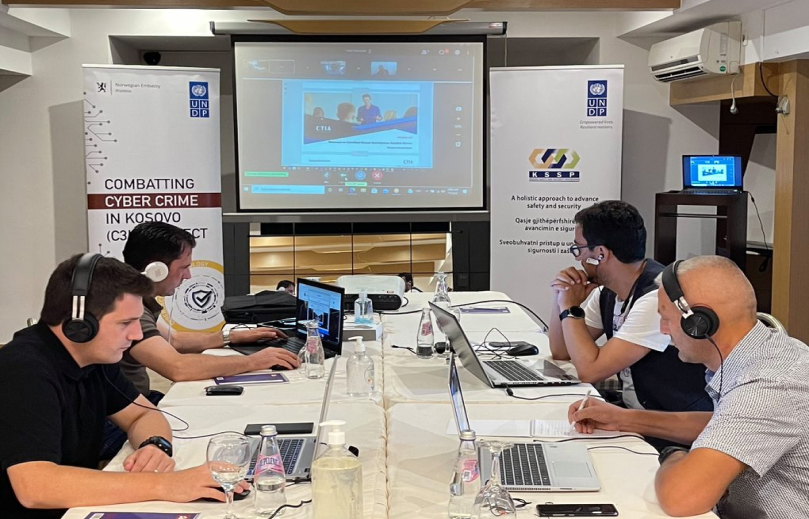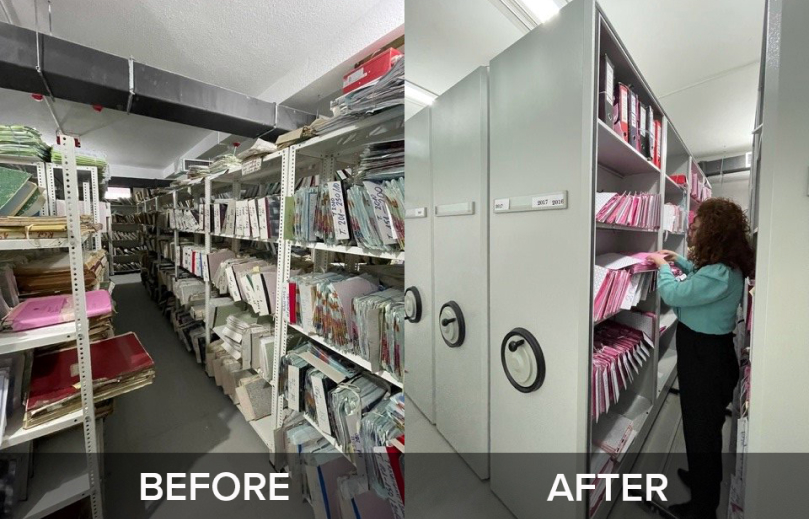Impact by Regions, Countries & Territories
UNDP’s Global Programme supports crisis-affected contexts across all regions to strengthen the rule of law and human rights. In this section, we present five regional overviews, detailing our priorities and approach depending on the context, as well as feature select country and territory results from 2021.
Five contexts from the list (Central African Republic, Democratic Republic of the Congo, Haiti, Mali and Yemen) illustrate the achievements of the Global Focal Point for the Rule of Law (GFP). In peacekeeping missions and transition settings, UNDP’s Global Programme works through the GFP to deliver integrated assistance with our UN partners.
GFP Global Focal Point Highlights
Political
Engagement
The rule of law is essential for sustainable peace and resilient economies, as well as for the prevention or recurrence of conflict. To prevent or address injustice, inequalities or democratic deficits, UNDP works with multiple stakeholders to operate in a way that is consistent with the rule of law and creates opportunities for all individuals to exercise their rights and access justice.
Institution
Building
The importance of strong institutions is more evident than ever as countries and communities respond to disruption, whether because of public health restrictions, climate change or political upheaval. Limitations on public gatherings and travel have revealed the need for institutions that are resilient to disruption.
Community
Security
2021 was a pivotal year that saw various developments affecting peace and security around the world. Civic space continued to shrink and the social contract between states and citizens was increasingly challenged, particularly during and after the response to the COVID-19 pandemic. Facing distressing consequences of climate change, states and communities are forced to manage more cross-border conflicts, triggered by the displacement of people seeking increasingly scarce resources.
Human Rights
Systems
The scope of human rights challenges is widening, from eroded public trust and shrinking civic space to ongoing inequality and human rights impacts in the socio-economic repercussions of the COVID-19 pandemic, and emerging risks in the digital sphere. National human rights institutions (NHRIs), along with other human rights defenders, are facing rising and sophisticated forms of reprisals for carrying out their work.
Access to
Justice
Sustainable Development Goal 16 (Peace, Justice and Strong Institutions) of the 2030 Agenda highlights the importance of access to justice for all for the development of peaceful and inclusive societies. Meaningful access to justice can only be achieved when people know their rights, have the opportunities, agency and capacities to claim them, and have access to independent, inclusive and people-centred justice systems that will respond in a timely, fair and effective manner.
Transitional
Justice
Without justice, there can be no lasting peace. In post-conflict, crisis-affected and fragile contexts, truth-seeking initiatives and reconciliation efforts are essential to bring peace to affected communities. The COVID-19 pandemic has slowed down transitional processes as states prioritized their response to the health crisis and measures to support the economy.
Gender
Justice
In 2021, the continued erosion of democracy and the spread of authoritarian trends in politics in many parts of the world contributed to a backlash against women’s rights. The COVID-19 crisis has reversed some of the hard-won gender parity gains by exacerbating pre-existing inequalities and power imbalances. It has also caused a dramatic increase in sexual and gender-based violence (SGBV). All these challenges have been particularly acute in conflict, fragile and crisis-affected settings.
Innovation
New ideas and new strategies are critical to building sustainable and effective development approaches that really meet people’s needs. Technologies and globalization raise new human rights concerns and threaten the rule of law. Responses to the COVID-19 pandemic continue to limit people’s access to basic services. UNDP connected expertise across the globe to learn and adapt. Creating a culture of curiosity and experimentation, these efforts ensured that local needs and expertise were combined with emerging models to bring strategic thinking to people-centred development goals.

Kosovo*
In partnership with the United Nations Mission in Kosovo (UNMIK), UNDP improved people’s language rights in courts and increased the quality of court translation and interpretation services. More specifically, UNDP established a modern and fully equipped translation office in the first instance court of Prishtina (the biggest court in Kosovo) which may be replicated in other courts. Further, building on results from 2020, UNDP developed the capacities of 30 court and prosecution translators and interpreters (including 14 women) and facilitated an event to enable south-south exchange of experiences on judicial translations between Kosovo and the Republic of North Macedonia. This support enabled the courts to start processing over 200 case files backlogged for many years due to the lack of translation services.
To modernize the archiving system in courts, UNDP provided an innovative and mobile shelving high-density storage solution for criminal cases in the first instance court of Ferizaj/Uroševac. It has optimized the use of storage space for case files and improved their accessibility. In addition, 12 legal officers were engaged in activities to reduce the backlog of the old cases. UNDP provided professional and technical support to evidence, identify, scan and prepare materials for disposal in accordance with the law on archives and respective regulations. Only in December 2021, more than 6,000 archive cases were registered for disposal.
To promote women’s empowerment and gender equality, UNDP provided support to the Youth Initiative for Human Rights, a women-led civil society organization (CSO), to launch an internship programme at the faculty of law and the Kosovo Judicial Council, organized a training course on gender norms and stereotypes for 30 young people (aged 18-24) from Peja/Pec and Mitrovice/a. The findings of this outreach activity will inform Kosovo-wide inclusive research mapping security, human rights and socio-economic challenges for young people posed by gender norms and stereotypes.
Within its Kosovo Safety and Security Programme (KSSP), UNDP implemented initiatives to increase cyber security with a focus on law enforcement and judicial institutions. 30,000 Kosovo institutional officials who use the information and communications (ICT) systems daily, were enabled to proactively search for, detect and prevent advanced security threats. Also, 118 ICT institutional officials representing law enforcement and other critical infrastructure institutions (87 men, 31 women) and over 100 (67 men, 33 women) prosecutors and judges gained skills to recognize cyber incidents, collect evidence, gather online intelligence data and conduct darknet1 investigations.

UNDP developed and fully operationalized an Incident Response and Threat Intelligence Platform to collect, detect and analyse threats towards critical infrastructure and critical information infrastructure. The focus was on potential threats from a third party (cyber attackers/criminals) through external threat feeds, such as phishing e-mails, ransomware or malware. The platform enabled Kosovo Internet Service Providers to identify and characterize ongoing and emerging Internet threat behaviours, generate reports and report incidents to relevant stakeholders.
UNDP’s capacity-building activities to stop the circulation of small arms and light weapons (SALW) and handle illicit arms trafficking in Kosovo brought tangible results. In 2021 the Kosovo Border and Investigation Department confiscated higher numbers of small arms and light weapons (1,280 compared to 1,135 in 2020), and ammunition of various calibers (42,031 items compared to 32,747 confiscated in 2020). To ensure this achievement is sustainable, UNDP continued organizing training sessions, in particular for 46 border police officers and investigators (38 men, eight women). In addition, 11 officials (10 men, one woman) from the Firearms Focal Point, Border Police, Customs, and Centre for Border Management improved their analytical skills on the Common Integrated Risk Analysis Model, intelligence reporting and detecting illicit arms trafficking. Ninety-six police officers (80 men, 16 women) enhanced their knowledge on basic firearms investigations and weapons confiscation, the legal framework on SALW, and local and international cooperation through the Firearms Focal Point/International Law Enforcement Cooperation Unit.
UNDP contributed to reinforcing regional cooperation on SALW handling and organized training for 120 law enforcement officers (111 men, nine women) from Kosovo and North Macedonia on weapons categorization, explosives, community policing and intelligence-led policing.

- *References to Kosovo shall be understood to be in the context of Security Council resolution 1244 (1999).
- 1 A dark net or darknet is an overlay network within the Internet that can only be accessed with specific software, configurations, or authorization, and often uses a unique customized communication protocol.
Key Results: Kosovo
UNDP developed the capacities of 30 court and prosecution translators and interpreters, enabling courts to start processing over 200 case files backlogged for many years due to the lack of court translators.
118 Kosovo police officials and over 100 prosecutors and judges gained knowledge on how to recognize cyber security incidents and collect evidence and intelligence data online. 137 police officers were trained in basic firearms investigations as well as on weapons confiscation, types of the firearms permissions, the legal framework on SALW, and local and international cooperation.
In 2021, Kosovo Border and Investigation Department confiscated higher numbers of small arms and light weapons (1,280 compared to 1,135 in 2020), and ammunition of various calibers (42,031 items compared to 32,747 confiscated in 2020).
